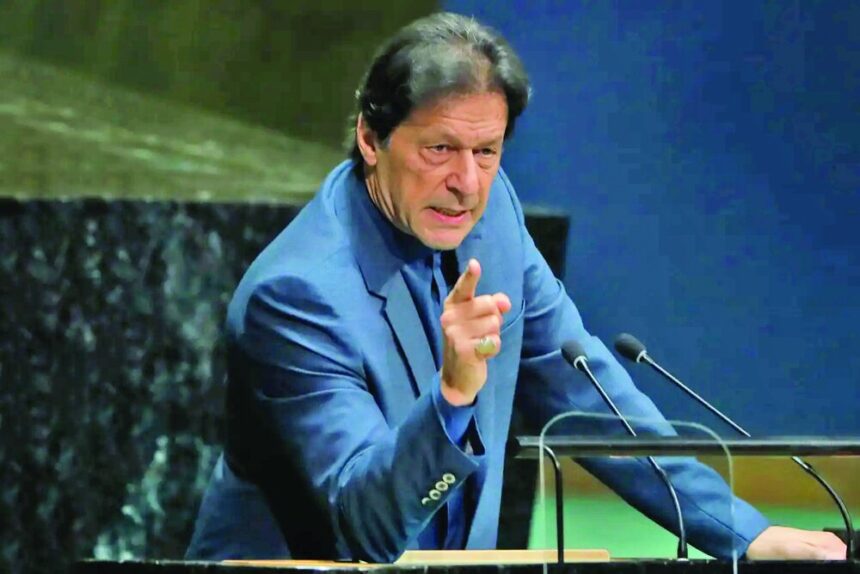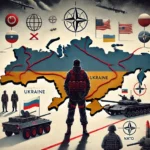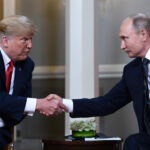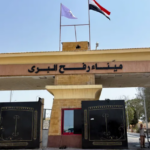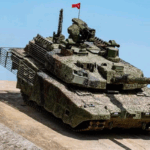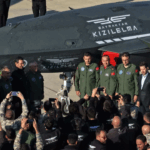Summary by Geopolist | Istanbul Center for Geopolitics:
The article analyses the political and legal obstacles that Imran Khan, the former prime minister of Pakistan, is currently encountering, with a particular emphasis on his disagreement with the influential military establishment. At present, Khan is confronted with numerous legal obstacles, including the possibility of a military court trial. This is a remarkable and exceptional occurrence for a civilian authority in Pakistan.
The main points:
- Following his removal from office in April 2022 by a parliamentary motion of no-confidence, Imran Khan, who had previously enjoyed the support of Pakistan’s military establishment, encountered a breakdown in his relationship with the military. Khan has since initiated a campaign against the military’s involvement in politics, alleging the army of meddling in politics and linking their actions to his ouster. He has also called for early elections.
- The May 2023 Protests and the Military Court Trials: Khan’s brief detention in May 2023 was a critical turning point that ignited widespread demonstrations throughout Pakistan. The Pakistan Tehreek-e-Insaf (PTI) political party’s members engaged in violent and destructive activities against military installations, including the residence of a prominent military officer. The military regarded this as an unprecedented attack on its territory.
- The army’s severe response resulted in the arrest of several of Khan’s followers, including prominent PTI leaders. They are presently being prosecuted in military courts. Khan’s political prospects may be jeopardized if he is indicted in these tribunals, which would be a substantial intensification given that military courts are renowned for their confidentiality and lack of civilian oversight.
- Lieutenant General Faiz Hameed’s Case: Lieutenant General Faiz Hameed, the former director of Pakistan’s Inter-Services Intelligence (ISI), is a significant character in this narrative. He played a crucial role in the ascent of Imran Khan to power in 2018. An important development is the prosecution of General Hameed, which pertains to the internal operations of the military and his potential involvement in Khan’s premiership. This indicates that the military is prepared to hold its own members accountable in addition to taking strict action against civilian legislators, which is likely to enhance discipline within the ranks.
- Although Imran Khan maintains a combative stance, he also appears to be exhibiting indications of a desire to establish a form of peace with the military. His subversive speech has garnered the support of a substantial portion of Pakistan’s populace, specifically the younger generation, who regard him as a symbol of rebellion against the traditional authority structures of the nation. Nevertheless, the military has engaged in personal disputes with him regarding his utilization of the same persuasive discourse, as they are apprehensive about his appeal to the general public.
- There is speculation regarding Khan’s potential willingness to engage in discussions with the military. Nevertheless, any agreement would undoubtedly involve substantial concessions, such as the military’s increased control over his party or his decision to abandon politics. This would be a significant compromise for a politician whose political career has been founded on challenging the status quo.
- Khan’s political organization, PTI, is currently experiencing uncertainty regarding its future. Several senior officials have either been arrested or have chosen to sever their ties with him as a result of the ongoing enforcement activities. Khan’s likelihood of achieving a political revival is significantly diminished by the military’s consistent undermining of the PTI’s organizational structure.
- Political Consequences: The political landscape of Pakistan may be significantly impacted by the outcome of Khan’s trial and his prospective amicable relationship with the military. Khan’s political career may be terminated, and the PTI may lose its status as a potent political force if he is incarcerated or marginalized for an extended period. However, it is challenging to disregard his political influence entirely due to his ongoing popularity and the empathy he evokes in the public.
The article depicts a multifaceted power struggle between Imran Khan, the military, and Pakistan’s political establishment. Khan is striving to maintain his political position, while the military is imposing its will. Khan may be permanently excluded from politics at this juncture, or he may negotiate his return to the political arena.
Read the full article below.
Imran Khan’s Biggest Trial
The arrest of Pakistan’s former ISI chief sharpens the confrontation between Khan and the military. But reconciliation remains possible – at a cost.
Hameed’s ongoing trial is over misconduct related to a private housing scheme. But given the colossal financial misappropriation, and nationwide land usurpation, linked to the Pakistan Army, the unprecedented move to court martial the former spymaster naturally has the interests of the power center at stake. The likeliest scenario would be invoking charges against both Hameed and Khan over the riots of May 9, 2023, which were aimed at military installations. Such charges carry severe penalties as per the Army Act, which could engulf the jailed ex-premier as well.
While Khan is now distancing himself from Hameed, the two have had a symbiotic relationship for years. “Imran Khan needed Faiz Hameed to become the prime minister, and Faiz Hameed needed Imran Khan to become the army chief,” a senior intelligence officer told The Diplomat. “For this, they have divided the nation and its institutions.”
Military insiders further reveal that a division had indeed crept up inside the Pakistan Army ranks in the lead up to the appointment of the army chief in 2022, with Hameed being one of the leading contenders. Those close to the military leadership at the time also claim that then-Army Chief Gen. Qamar Javed Bajwa was seeking another extension and did not want his eventual successor, current Army Chief Gen. Asim Munir, to take command.
“These divisions [in the army leadership] exist based on personal inclinations. They are inevitable because the military has been so heavily involved in politics since the inception of the country. That needs to change,” said former military commander Lt.-Gen. Talat Masood.
Senior Pakistan Muslim League-Nawaz (PML-N) Senator Irfan Siddiqui claims that it was the party president and former premier Nawaz Sharif who pushed for Munir’s ascension as the chief of army staff. This signals a reversal of the military leadership’s machinations, which Sharif has thrice been at the receiving end of, most recently in 2017.
With the name of the former Chief Justice of Pakistan Saqib Nisar also coming up in connection with Hameed and Khan’s maneuvers, the narrative being built by the current civil and military leadership is that those being targeted were anomalies in their respective institutions. The move to court martial a former spymaster, who was in the running to head the army only a couple of years ago, is targeted at reaffirming this assertion.
This is also designed to send a message to dissenters within the military ranks. “Some army officers might have had their preferences, some might have admired Imran Khan as a political leader, but when it comes to the leadership of the military institution, the army chief remains undisputed,” maintained Masood.
As is the norm, these overt displays of military-led unity have led to a nationwide crackdown against dissent, amid an explosion of anti-army sentiment. From action against the members and workers of Khan’s Pakistan Tehreek-e-Insaf (PTI), to abductions targeting dissidents, to internet policymaking designed to silence critique, the military leadership has sought to enforce totalitarian control over the country. And much of the focus of the authoritarian policymaking has been Imran Khan.
In addition to an array of cases against him, and the talks of a potential trial in military court, Khan is also faced with turmoil within his own party. Many of the senior PTI members were forced to leave, while those still with the party are faced with continued duress, hindering his calls to organize protests against the rulers.
“There is disharmony and conflict within the PTI ranks, and there is immense pressure on them from the deep state as well. And whichever party has faced such a pressure in Pakistan, it has always struggled to function,” former Punjab chief minister and political scientist Hasan Askari Rizvi, the author of “The Military and Politics in Pakistan,” told The Diplomat.
Accordingly, Khan has himself felt the heat of the state’s actions, in turn intermittently calling for talks with the army chief. His outreach remains exclusively to the army, while the PTI founder maintains his position against his civilian opponents. Apparently neither Khan nor those at the helm of an unpopular government is invested in upholding democracy in the country.
However, PTI insiders say that the masses’ discontent with the current rulers – to whom they attribute the theft of the people’s mandate and the ongoing economic turmoil – has made Khan confident that the PML-N government might be sent packing soon. They cite this belief as the reason behind Khan’s overtures to the military leadership.
“There are signs of flexibility, especially about talks [with the army]. Sometimes the [anti-establishment] statements are less compared to the past, then sometimes one sees a return to the previous position. There remains inconsistency in his narrative,” said Rizvi.
Khan has called for due action against Gen. Faiz Hameed and the perpetrators of May 9 riots, suggesting that he is happy to echo the current military leadership’s narrative if allowed to come back to power. But at the same time, PTI insiders also reaffirm that the party founder is bracing for all possible actions against him and planning accordingly. This includes banking on his overseas reputation, and the potential uproar over any grave moves against him, as exemplified by Khan’s bid to contest the Oxford University chancellor election from jail.
“The army leadership knows that they cannot get rid of him that easily. The people are behind him and he will not go away that easily. Imran Khan deciding to stay in jail, instead of taking the easy way out, is itself the very definition of anti-establishment,” said Javed Hashmi, former president of the PTI.
In spite of the fact that Khan benefited from the same military-led political engineering that he is now the victim of, and despite his recent moves toward reconciliation with the army leadership, he remains in a unique position to enforce the will of the people by finding a way to return to the helm of government.
However, the power corridors that he has to cross require him to return to the subservient role that he adopted in order to win his first stint in office. That’s precisely why the army leadership is hanging the sword of a military court trial over his head. And Hashmi, who left the PTI over Khan’s complicity in the military’s dismissal of Nawaz Sharif, now wants the jailed ex-premier to make the most of this opportunity to right his own wrongs.
“I had advised Imran Khan not to come to power with the backing of the military 10 years ago, and today I would advise him not to strike a deal with them,” said Hashmi. “If he compromises, then the people of Pakistan, who are behind him, will not forgive him. Imran Khan’s actual trial is in the people’s court.”
By Kunwar Khuldune Shahid
Source: The Diplomat

